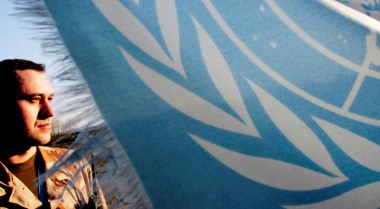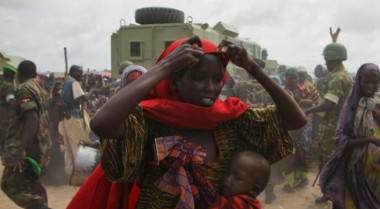
What Peacebuilders Can Learn From The South Caucasus: 5 Key Takeaways For Building Sustainable Peace
The global understanding of what peacebuilding means has evolved in recent years from a focus on post-conflict reconstruction to “a goal and process […] aimed at preventing the outbreak, escalation, continuation and recurrence of conflict”. The sustaining peace agenda makes peacebuilding relevant everywhere.
This vision requires focusing not only on the regions and countries that are in transition, but also looking at the situations of protracted or “frozen” conflicts, such as the conflicts in the South Caucasus.
Peacebuilding in the region could be more sustainable if international and regional actors directed their attention to these frozen and/or protracted conflicts, to better address the root causes of conflict and instability.
With an overall lack of meaningful multilateral engagement and the absence of regional platforms for dialogue, much of the negotiations around the conflicts in South Caucasus are left to national leaders. This in turn makes the processes exclusive and limited a traditional peace and security debate.
Here are the 5 key lessons that the peacebuilding community can learn from the South Caucasus region:
- The United Nations Peacebuilding Architecture continues to misprioritize frozen or protracted conflicts
The adverse impacts of decades-old protracted conflicts on human rights, sustainable development, and social cohesion cannot be understated. The longer these conflicts fester, the more fragile and strained the circumstances within the region becomes. The situations in Nagorno-Karabakh, Abkhazia, South Ossetia as well as the conflict between Georgia and Russia remain tense, and have the ability to foster destabilization throughout the entire region. While conflicts in the region remain on the UN Secretary-General’s proposed agenda, there is little current UN-led peacebuilding action in the region. Peacebuilding in the region could be more sustainable if international and regional actors directed their attention to these frozen and/or protracted conflicts, to better address the root causes of conflict and instability.
- Exclusive high-level platforms for dialogue remain largely ineffective in achieving goals of sustainable peace
Multilateral partners have previously been more actively engaged in the peacebuilding work in the South Caucasus. However, almost all have either withdrawn or simply remain ineffective. Currently, the Minsk Group for the Nagorno-Karabakh conflict and the Geneva International Discussions on the conflict in Georgia both remain highly exclusive. With the absence of meaningful involvement from local peacebuilders from the discussions, the capacities of national and multilateral stakeholders are too limited to be effective. Thus, there remains a demand for inclusive regional forums to create platforms for better engagement, that enable regional and cross-regional dialogue and cooperation, while mapping and mobilising actors best positioned to identify and respond to peace and security challenges.
- The current political climate in the South Caucasus hampers opportunities for peace
The political situation within the region does not lean towards finding compromises to solve the conflicts. The political dynamics and exclusive approaches, when coupled with a lack of meaningful inclusion of local peacebuilders, create conditions that effectively make the conflict in the region “frozen.” The conflicting political interests of parties involved have far reaching effects on the trajectory of peace in the region. The growing separation between people within the states and the ongoing militarisation of the conflict fuel a sense of insecurity among local populations while negatively impacting access to civic space. This calls for increased attention and leadership of international and regional stakeholders and donors in supporting projects aimed at developing and improving social cohesion and behavioral change.
- Peacebuilding needs to be people-centered and locally owned
Local peacebuilders play a vital role in providing official negotiation processes with relevant perspectives, input and feedback from the community level. The work of the Network of Women Mediators helps involve, strengthen and legitimize women's contributions to the peace processes. Peace journalism in the South Caucasus has inspired alternative understandings of contested political topics, addressed hate speech, and helped build an environment of mutual support and trust. Due to the flexibility of their structures and their close relations with diverse grassroots constituencies, local peacebuilders are often able to reach out to places and actors that government officials or international actors cannot. Sustaining peace therefore, requires strengthened action to build strategic and operational partnerships with local peacebuilders, including women peacebuilders and youth groups, to ensure sustainable peace through a successful people-centred and locally-owned approach.
- Inclusive platforms and spaces for dialogue, joint analysis, and national ownership for sustaining peace
Regional platforms for dialogue inspire joint analysis, support the advancement of regional norms, frameworks and actions, and build a common understanding of the concerns, interests, and needs of people, and mobilise a joint action. Where peacebuilding is not yet locally-driven, multilateral action is not considered an integrated or societal one, lacking legitimacy. This impedes building national capacities for peace, including legitimising the role of peace mediators and isolation of local peacebuilders in the Track 2 processes. The UN should strengthen and support the creation of flexible inclusive spaces for dialogue, where relevant parties concerned for peace can work together to develop comprehensive solutions.
The situation in the South Caucasus reveals the need to revisit how the UN and other multilateral actors engage with protracted and frozen conflicts. This requires going beyond exclusive high-level platforms and effectively supporting local expertise and practices to inform the official processes through engaged and cooperative regional platforms for dialogue. In these platforms, the political dynamics in the region and their impact on people within communities can be better analysed to provide a comprehensive overview of root causes and develop more relevant, strategic and catalytic prevention measures for sustaining peace

